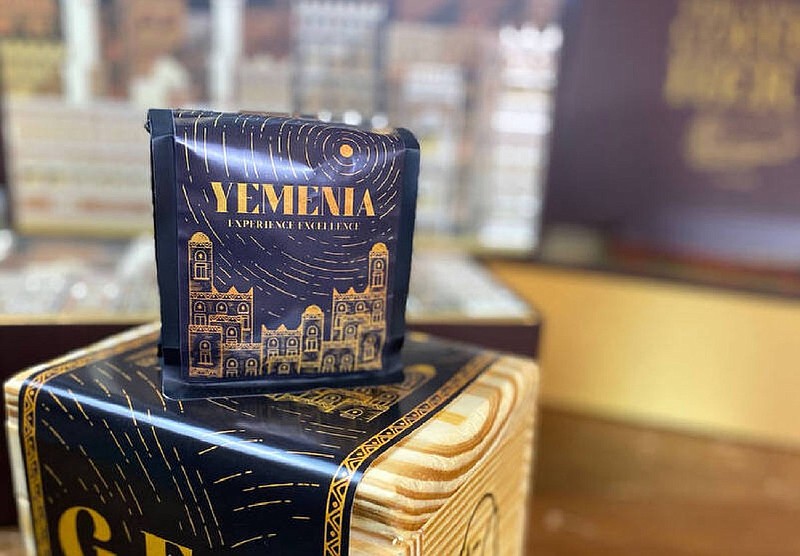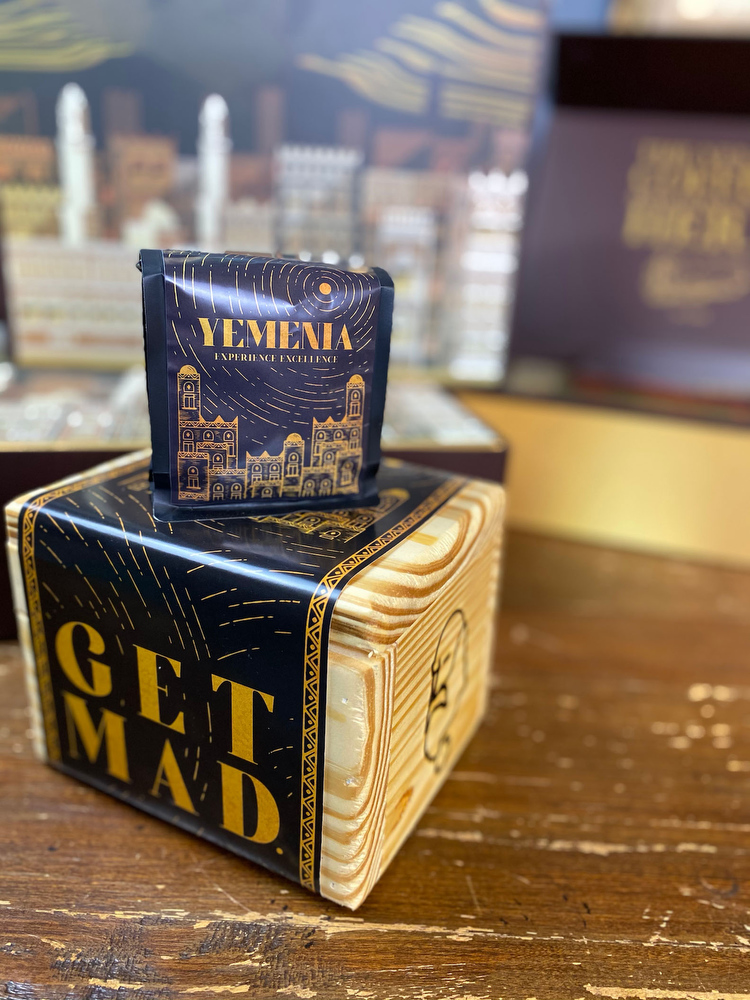How does Michael Rice, co-owner of Mad Priest Coffee Roasters, deal with officially closing the Cherry Street location because of health and financial reasons brought on by the COVID-19 pandemic? He takes a good chunk of his working capital and buys a $30,000 lot of newly discovered Yemenia coffee.
Rice paid $140.50 per pound for around 210 pounds of the coffee, which was recently determined to be a previously unrecognized "mother coffee," at an auction. For perspective, he also recently paid $10 a pound for some high quality Columbian coffee beans.
"And, that is still a lot," he said. "Usually we might pay around $5 to $7 per pound."
Because of the cost of the beans, Rice plans to sell it only via pre-orders done either online or in store at the retail location on Broad Street or the drive-in/roasterie location on Wilcox Boulevard. The Cherry Street location has been closed since July, but it wasn't made official until recently.
"It didn't make sense to keep it open," Rice said.
The Yemenia coffee will be sold for $65 for four ounces or $103 for eight ounces. Rice said he does plan to have two or three pop-up events, including one this Friday, which will be promoted in the roasters news letter, in the coming weeks where people can sample the coffee. He hasn't decided on a price for a pour-over cup of Yemenia, but said it would likely be in $10 neighborhood.
Rice said he doesn't expect to make money off of the lot purchase and is hoping to at least break even, adding that it was worth it for several reasons with taste being just one of them. So, what is so special about this coffee? According to Rice, it's a lesson in genetics, farming, logistics, politics, war and poverty.
"I want to be part of history," he said.
He's most excited about the fact that the beans were grown in one location in war-torn Yemen and that 72% of the sale price will go directly to the farmer.
"I just got the transparency report yesterday and $101 will go directly to the growers who are stuck in a civil war. I believe in economic mobility and I hope people will get excited about that with this coffee, as well. That's Giving Tuesday," he said referring to the annual event this week designed to get people to give to charities and organizations that do good for others.
Simply put, there are about 120 coffea species that produce coffee beans with Arabica, which accounts for 60-80% of the world's coffee production and Robusta, which accounts for most of the rest, being the most familiar. From those, you have mother coffees and under those, you have varietals, which are hybrids created to grow well in certain regions of the world. Most of the coffees we drink are varietals and most of those can be traced back to Arabica, and the Robusta, Rice said.
Yemenia has been identified as a new mother coffee.
While the coffee plant was first discovered in Ethiopia centuries ago, it was first cultivated as a crop and introduced as a drink in Yemen. The coffee-house movement originated in Yemen in the 1500-1600s. However, Yemen coffee has not been imported into the United States or the West very often because of the cost and difficulties in getting it, though that has changed somewhat in recent years. Mad Priest actually offered a coffee from Yemen in 2017 called "The Original Hipster."
Rice explained that the Yemenia coffee is not new, and has in fact been grown there for years, but that because of the poverty of the country and the wars, it went undiscovered for what it is. Geneticists with the World Coffee Research set out to test the coffees in Yemen during an expensive, years-long test recently and were surprised to find a new mother coffee.
"The test is very, very expensive, and to do it in Yemen is also tough. Just getting in there is tough, but some people, like the people at Qima, have a history there often through family or whatever.
Several varieties of the Yemenia beans along with several others were presented in blind taste test after the new discovery, and Rice said each not only was voted in the Top 10, but received scores in the 90s.
"Getting a 90 for a coffee is very rare."
Adding to the cost of the Yemenia coffee is the fact that Yemen has little infrastructure for things like growing, harvesting, washing and transporting the beans.
With the aid of organizations like Qima, the coffee is now available to sellers such as Mad Priest. Rice hopes to introduce it to more than just the "coffee nerds" like himself.
"It's definitely for the coffee nerds and professionals into new discoveries, but more importantly to me is to convince anyone who can afford it to try it," he said. Even if they are not huge coffee drinkers. The flavor compounds are amazing, but even more importantly, they would be participating in social justice and have an impact on people in a war-torn country."
Contact Barry Courter at bcourter@timesfreepress.com or 423-757-6354.

